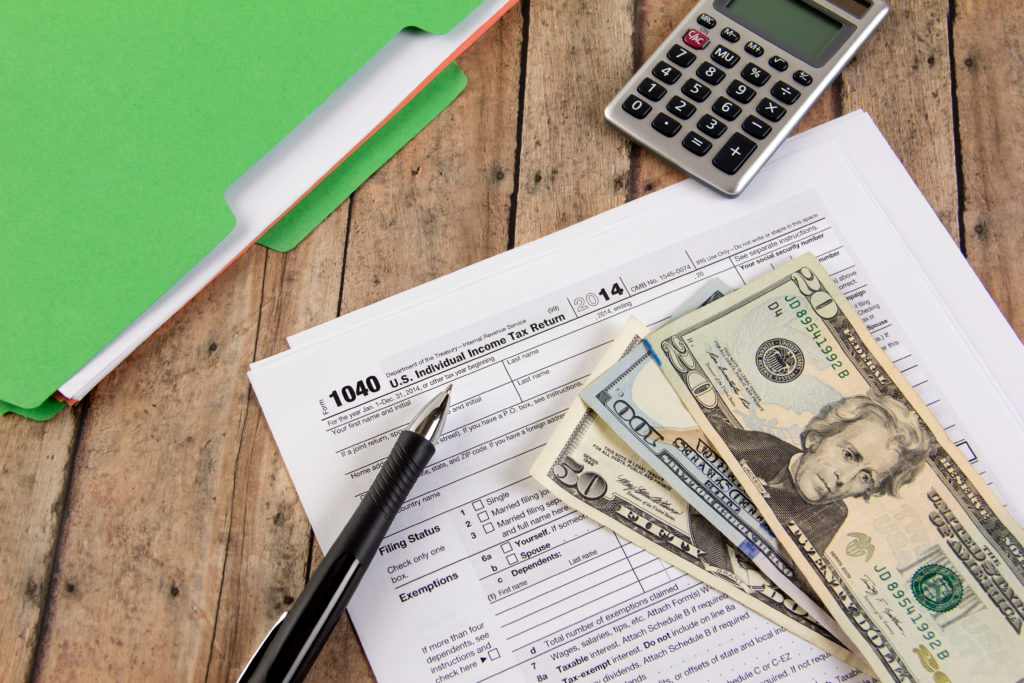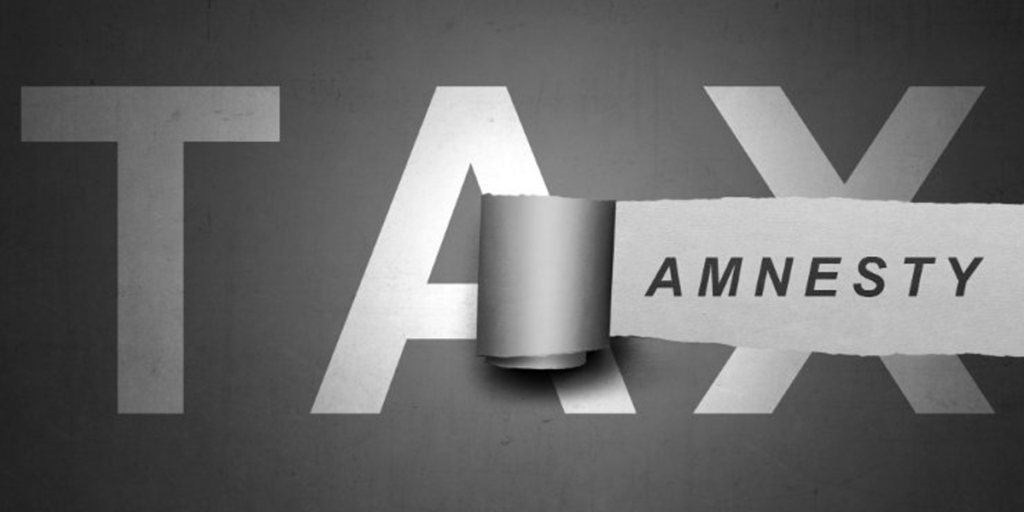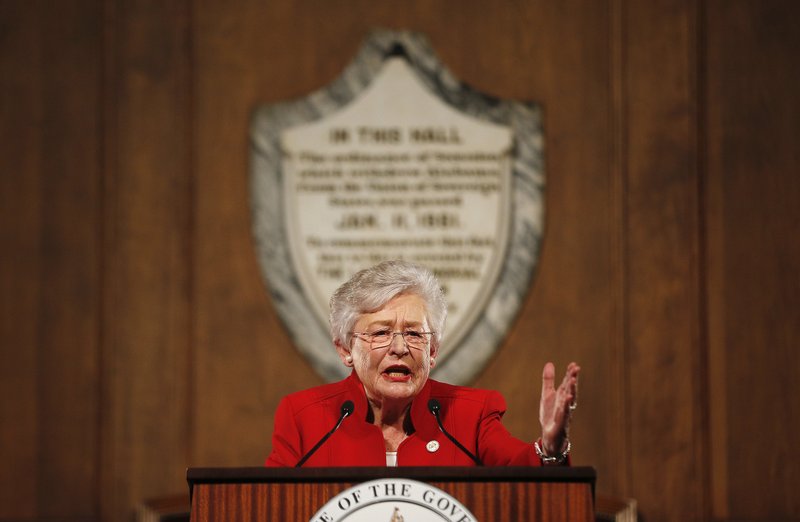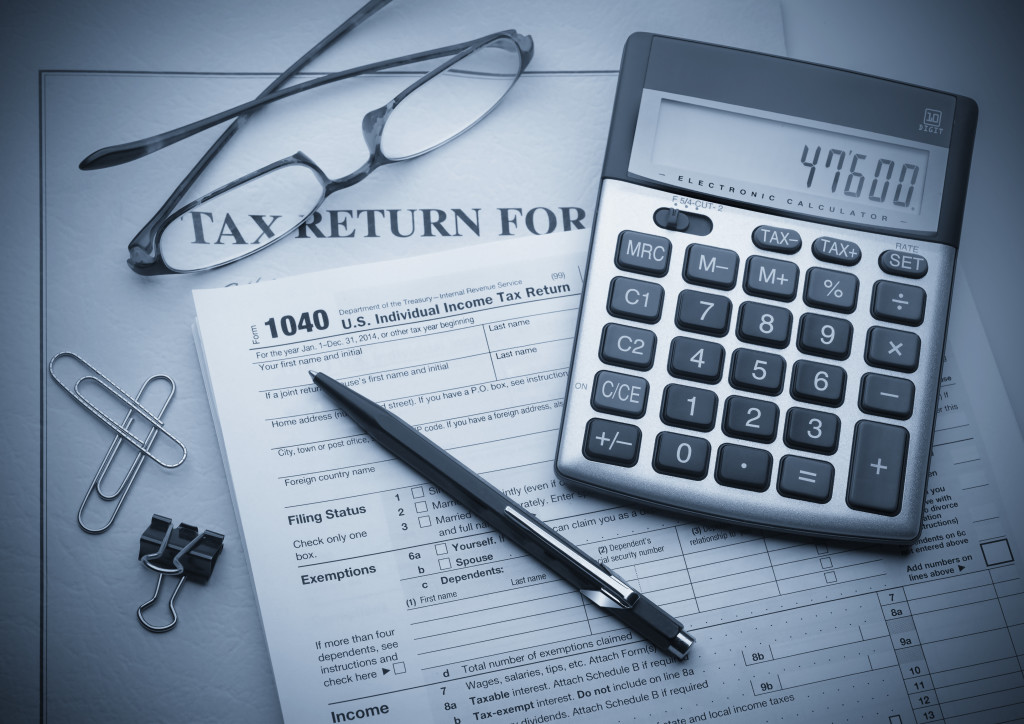Tax revenues down slightly in October compared to the year prior

In the first month of Alabama’s fiscal year, the state’s tax revenues are down slightly by 1.3% compared to October 2022. According to the state Department of Revenue, the state’s major sources of revenue – the personal income, the state’s 4% sales and the corporate income taxes – all took a dip compared to the year before. Revenue from the state’s personal income tax in October decreased 6.19%, shrinking from $310 million to $291 million this year. The state’s sales tax revenues shrunk by 7.65%, going from $268 million to $248 million. Corporate income tax was down by 8.41%, shrinking from $77.8 million to $71.3 million. One of the biggest drops was from the state’s 68-cent per cigarette pack tax, which had a fall of 21.96% compared to October 2022. Those revenues were down from $11.8 million to $9.2 million. One tax that broke the state’s negative revenue trend was the Simplified Sellers Use Tax Program, which allows collection of a flat 8% use tax on out-of-state sales and avoids heavier local levies such as Mobile and Birmingham (10% combined state and local sales tax rates). Those collections were up 15.27%, going from $53 million in October 2022 to $61.9 million. Another outlier was the state’s 4% use tax, which was up slightly (2.28%) compared with October 2022. The tax, which is levied on out-of-state purchases, had its revenues grow from $52.3 million to $53.5 million. Gasoline tax revenues were down only 0.58%, staying in the $58 million range. Republished with the permission of The Center Square.
Alabama tax revenues continue upward trend

(The Center Square) — Alabama’s tax collections in August were up compared to last year, continuing a four-month streak of increased revenues. According to data from the Alabama Department of Revenue, total collections for August were up by 3.71%, growing from $1.3 billion in August 2022 to $1.35 billion this August. For the fiscal year that ends Sept. 30, total collections are up 3.48% compared to the previous fiscal year, improving from $14.57 billion to $15.07 billion. Collection of sales tax ($270 million) was up by 2.94% in August compared to the same time last year ($263 million). For the year to date, sales tax revenue is up by 4%, improving from $2.86 billion in August 2022 to $2.97 billion this past month. The state’s use tax, which is assessed on out-of-state sellers, had nearly 3% growth from the year prior. In August, the state took in $47.4 million compared to $46 million the same time last year. Revenues from the state’s personal income tax were up 3.2% compared to August 2022, with collections increasing from $673 million to $694 million. Those year-to-date collections lag behind the previous year by 3.36%; the state took in $5.33 billion compared to $5.52 billion last year. Corporate income tax revenues in August grew by nearly 49%, improving from $26.6 million last year to $39.7 million in August. For the year to date, revenues are up nearly 4%, going from $918.3 million to $954 million. One tax category that has taken a precipitous decline is the state’s 8% privilege tax and 2% production tax. Both were down by more than 60% in August compared with the same time last year, with the privilege tax revenues down 63.4% and the production tax down nearly 66%. For the year to date, the two taxes are down 21.5% and 18.8% respectively. Gasoline tax revenue was up slightly (3% increase) compared to August 2022. Alabama collected $61 million at the gas pump in August, up from last year’s $59.3 million. So far this year, gas tax revenues have grown slightly (1.06%), increasing from $627.4 million to $620.8 million. Republished with the permission of The Center Square.
Tax revenues increase for the third consecutive month

Alabama’s tax revenues continue to outperform last year’s numbers, as the state brought in nearly 10% more revenue than July 2022 to mark three consecutive months with gains. After a 13.39% reduction in tax revenue from the year before in April, collections have rebounded in May (2.63% gain over the same time last year), June (5.42%), and July (9.97%). The Alabama Department of Revenue reported slightly more than $1 billion in tax receipts in July, compared to $910.6 million in July 2022. For the fiscal year that ends on Sept. 30, the state’s tax collections are up 3.46%, improving from $13.26 billion to $13.72 billion. Corporate income taxes were among the big gainers. Collections added up to 84.7% more in July than the same time last year; the Yellowhammer State collected $67.2 million versus $36.4 million. Also on the increase in July were individual income tax collections, as the state received $230.8 million in July compared to $203.8 million last year, an improvement of 13.27%. Use tax, which is assessed on all out-of-state sales such as online retailers, had a gain of 5.43% compared to July 2022 with revenues of $51.5 million versus $48.9 million. Sales tax revenues were up slightly at 1.49%, going from $275.2 million in July 2022 to $279.3 million this past month. Gasoline tax revenues were also up in July, improving 3.06% to $60.5 million after tallying collections of $58.7 million in July 2022. Cigarette taxes were down by 13.21%, shrinking from $13.5 million in July 2022 to $11.7 million this July. The state’s 2% tax on oil and gas production had a precipitous 60.7% drop in July, going from $1.54 million in July 2022 to slightly more than $608,000 this past month. Republished with the permission of The Center Square.
Eyeing their share, Alabama cities seek more online tax data

Mayors of Alabama’s largest cities want to open up the hood on the state’s online sales tax program, amid worries that cities that impose high sales tax rates may be losing out on revenue. AL.com reports mayors of the state’s 10 largest cities want state lawmakers this year to mandate more data be provided about online sales taxes. While the combined city, county, and state sales tax rate in most Alabama cities is higher than 9%, the state’s Simplified Sellers Use Tax collects only 8%. Whether traditional sales tax or online tax is collected, the state gets a 4% cut. Cities get 60% of the other half of the 8% online rate, while counties get 40%, with individual amounts determined by population. That’s a good deal for counties because Alabama cities often reap a larger share of local sales tax revenue. Cities and counties fought over how the money was divided in 2018 and 2019. The program generated $634 million in the budget year ended September 30, up 65% over two years. Mayors aren’t yet proposing a re-division. Instead, they say they want figures on where purchases are coming from, so they can compare that to their current shares of online sales tax. “With transparency, we can ensure that our schools, police departments, and road networks are receiving the investments they have earned,” Tuscaloosa Mayor Walt Maddox said. No bill to require more data has yet been filed. Sonny Brasfield, executive director of the Association of County Commissions of Alabama, said he believes mayors want a larger share of the pie. He said that to meet mayors’ demands, the state would have to repeal confidentiality laws that bar disclosure of how much any one taxpayer pays. “No city in Alabama can disclose the amount of sales tax paid by an individual business inside its jurisdiction,” Brasfield said. “That information is private and essential to a business’ success.” The mayors say they need to know the total online sales tax activity originating in their cities, not how much any one business pays. They also argue that the 8% rate is unfair to businesses that must charge higher rates for purchases made at their stores. “We think that cities, counties, school systems, and Alabama taxpayers ought to be able to get a clear picture of our how online sales tax system works in order to have certainty and plan for the future and know that our local small businesses are being treated fairly,” said Mobile Mayor Sandy Stimpson. Frank Miles, a spokesman for the Alabama Department of Revenue, said state law currently precludes the type of disclosures the mayors might be seeking, because Alabama only collects statewide online sales figures and is barred from collecting local-level data. Republished with the permission of The Associated Press.
Rachel Blackmon Bryars: ‘School choice’ also means ‘tax choice’ in Alabama

It’s back-to-school season and for some parents, this is a happy time. But for those whose children are stuck in underperforming schools, or schools where they are bullied or are in danger, this is a heartbreaking time, especially if they cannot afford to move or go to private school. “There was fighting every day. People wanted to shoot me, kill me, and everything,” said Calvin Coleman in a speech about his experiences at his Mobile public high school. Did you know that you, or your company, can help students like Calvin by donating a portion of what you already owe in state income taxes to a program that funds scholarships for low-income families in Alabama? “When my son Carlos was in the fifth grade, he was constantly bullied and I wanted to desperately put him into a private school,” wrote Nyenya Webster of Montgomery in Alabama Daily News. Every day was a struggle, she added. “I was at a loss as to what to do to help my son.” Then Webster learned about the tax-credit scholarship program created in 2013 by the Alabama Accountability Act that serves roughly 4,000 low-income, mostly minority Alabama students. She applied, and Carlos received a scholarship to attend Success Unlimited Academy in Montgomery. “Success Unlimited has been a lifesaver for my son,” Webster wrote. “He … is now considering college. My son never talked about going to college before Success.”For those who want to help other Alabama families break the cycle of poverty through education, it’s a no-brainer. “For a donor, it doesn’t cost them anything,” said Warren Callaway, executive director of Scholarships For Kids, one of the scholarship granting organizations funded by the program. That’s because a tax credit is different from a charitable contribution. When you make a charitable contribution to a non-profit organization, you deduct a portion of that on your income tax. However, a tax credit allows you to take a dollar for dollar reduction in your state income tax. “Basically, donors are redirecting some of their state income tax liability to a [scholarship granting organization],” Callaway said. “So, if you give $100 to us, you can reduce your state income tax by $100.” Who benefits from the donation? “The average household income for these students is under $30,000 so these are families that would have no other way of choosing the school that is best for their child,” said Ryan Cantrell, director of state strategy and political affairs for the American Federation for Children, during an interview of the 1819 podcast. Higher-income families have always had school choice, Cantrell said, but “it’s the low-income families who get stuck with no options in under-performing schools or schools that don’t work for their child.” There are $30 million in tax credits available and, so far, only about a third have been claimed, according to the Department of Revenue’s My Alabama Taxes website. Here’s how you can reserve your tax credit before the December 31, 2019, deadline: Step 1: Estimate how much income tax you or your business will owe Alabama next year by checking how much you paid last year. Individuals and corporations can donate up to 50 percent of their tax bill, and while individuals are limited to $50,000, corporations are unlimited. Step 2: Visit the My Alabama Taxes website and follow instructions for reserving an Alabama Accountability Act tax credit. Step 3: Send a check to one of the seven scholarship granting organizations in Alabama within 30 days. Step 4: When you do your taxes next year, fill out an Alabama Department of Revenue Schedule AATC form to reduce your income tax bill by the amount you donated. For more help, individuals may call the Alabama Department of Revenue at 334-353-0602 or 334-353-9770, and corporations may call 334-242-1200. You’re already going to have to write a check for your state income taxes. Why not control where some of that money goes, especially when it has the power to change lives? “It was a relief that nobody would understand,” said mother-of-five Alleane West in an Alabama Opportunity Scholarship video about the program’s impact on her family. “You know, you’re a single mom with boys trying to not make them a statistic.” Rachel Blackmon Bryars is a senior fellow at the Alabama Policy Institute. Connect with her at rachel@alabamapolicy.org or on Instagram @RachelBlackmonBryars.
Alabama Department of Revenue offers tax relief to Hurricane Michael victims

The Alabama Department of Revenue (ADOR) has acted quickly in announcing tax relief for Hurricane Michael victims. The tax relief measures will mirror IRS measures in the same declared disaster areas. “Our thoughts and good wishes continue to be with the millions of people who have been affected by recent disastrous storms, including Hurricane Michael,” said Revenue Commissioner Vernon Barnett. “The Alabama Department of Revenue is offering this tax relief to hopefully help ease some of the burden on victims as they begin the process of rebuilding.” ADOR will grant filing extensions to taxpayers directly affected by Hurricane Michael. Alabama taxpayers residing in areas designated as disaster areas by the federal government have until Jan. 31, 2019, to file tax returns due on or after Oct. 10, 2018, and before Jan. 31, 2019. Penalty relief will be provided during the extension period. Taxpayers seeking this Alabama tax relief should write “Michael Relief – 2018” in red ink on any state paper return/report which relies on this filing extension relief. Affected taxpayers filing electronically should contact ADOR for filing guidance. Taxpayers may contact the following ADOR offices by telephone: Individual income tax: 334-353-0602 Corporate income tax: 334-242-1200 Pass-through entities: 334-242-1033 Sales and use tax: 334-242-1490 Business privilege tax: 334-353-7923 Withholding tax: 334-242-1300 This relief will apply to eligible localities as listed in the IRS announcement, when available, at https://www.irs.gov/newsroom/tax-relief-in-disaster-situations. Taxpayers in localities added later to the disaster area, including those in other states, will automatically receive the same filing and payment relief. In addition, taxpayers in areas not specifically designated as disaster areas who encounter difficulty filing on time due to weather-related circumstances associated with Hurricane Michael may be eligible to request a waiver of late-filing and late-payment penalties after providing appropriate documentation to ADOR.
State issues guidance on how Donald Trump’s tax cuts will impact on Alabama

The Alabama Department of Revenue (ADOR) on Tuesday issued its preliminary guidance on the impact of the provisions of the Tax Cuts and Jobs Act (TCJA) to the State of Alabama. Passed by Congress and signed into law by President Donald Trump on Dec. 2017, the TCJA enacted changes across the board to the federal tax system for both businesses and individuals, primarily for tax years beginning on or after Jan. 1, 2018. According to ADOR’s 50-page guidance, “the overall impact of the federal changes as it relates to Alabama income taxes is unknown until all provisions are in effect.” In fact the guidance is preliminary and subject to revision as more information becomes available, including additional federal guidance and input from other tax administrative agencies and/or the private sector. The guidance addresses whether, and how, the provisions of the TCJA are tied to Alabama’s taxing regime, as they relate to individuals (including sole proprietors), corporations, and financial institutions. “Since the Alabama corporate income tax is tied to the definition of federal taxable income ‘as in effect from time to time’, much of the fiscal impact of the TCJA on our corporate income tax revenues is automatic,” Bruce Ely, a tax attorney and partner at Bradley Arant Boult Cummings LLP in Birmingham, Ala., told Bloomberg Tax. “In contrast, our individual income tax scheme selectively conforms to the IRC counterpart and is outdated in many respects, so benefits like the new Section 199A deduction for owners of pass-through entities apparently won’t carry over into Alabama law—at least not without curative legislation.”
Alabama begins tax delinquency amnesty program of 2018

On Sunday, the State of Alabama began taking applications for its tax delinquency amnesty program. From now through Sept. 30, eligible taxpayers can submit applications at alabamataxamnesty.com in an effort to gain amnesty for unreported tax liabilities. If the amnesty application is approved during the amnesty period, and if all returns, supporting documentation and full payment are received by Nov. 15, 2018, the Department will waive all interest and all penalties associated with the tax periods for which amnesty is applied. The program, signed by Gov. Kay Ivey in March of this year, applies to all taxes administered by the Alabama Department of Revenue (ADOR), which includes, but is not limited to, corporate and individual income, business privilege, financial institution excise, consumers use, sellers use, withholding, and sales taxes. Motor fuel, motor vehicle, and property taxes are excluded. Eligible tax liabilities include liabilities that became due prior to January 1, 2017, or tax liabilities for periods that began before January 1, 2017. Who can submit and how The amnesty program will be available to eligible taxpayers who have not been contacted by the department within the last two years and are not a party to a criminal investigation or litigation in any court of the United States or Alabama pending as of March 6, 2018, for nonpayment, delinquency, or fraud in relation to any Alabama taxes administered by the Department. All applications must be submitted electronically through the Alabama tax amnesty website, which provides all the information taxpayers may need on the program and answers to frequently asked questions. Taxpayers who believe they may have delinquent tax liabilities in Alabama should consult with their tax advisers regarding their eligibility for the tax amnesty program.
Meet Christy Edwards, your presumptive, new Court of Civil Appeals, Place 1 Judge

In the race for Alabama Court of Civil Appeals Place 1, three candidates stepped up to the plate seeking election in the June 5 primary. Judge Christy Edwards and Judge Michelle Thomason both garnered enough support to tip the race into a runoff election in which Edwards took home 54 percent of the vote. Now, facing no Democratic challenger in the November general election, Edwards has presumably won her race and will become Court of Civil Appeals Place 1 Judge in 2019. With that in mind, here are the five things you need to know about Christy Edwards: 1. She’s a judge on the Alabama Tax Court. In 2016 Edwards was appointed to the Alabama Tax Tribunal where she currently serves as a Judge. According to her campaign website, she wants to bring her knowledge of tax laws to bear on the appeals process. “Everyone has to pay taxes – businesses, business owners, consumers and regular people,” Edwards said. “The businesses and the people of this state need a judge who will oversee the tax laws and protect the taxpayers according to all the laws overseen by this court. I will do that.” 2. She’s an award-winning writer and orator. In law school Edwards was the Regional Champion of the American Bar Association’s appellate advocacy competition, Regional Champion and national quarter finalist of the National Best Brief competition, and was named Jones Law School Best Oral Advocate. Her most recent articles have been published in the Journal of Multi-State Taxation and Incentives. 3. She was endorsed by primary opponent Pat Thetford. Primary opponent Pat Thetford endorsed Edwards, saying he believed she is the best candidate for the job and urged his supporters to vote for her in the runoff election. 4. She has two degrees from Alabama. After completing a bachelor’s degree in Finance and Economics from the University of Alabama, Edwards earned her Juris Doctorate from Faulkner University Jones School of Law and an LL.M. from the University of Alabama School of Law with a focus on complex state tax laws. 5. She previously served as an Assistant Attorney General. Edwards practiced family and commercial and civil litigation in her own private practice for 2 years after law school. She then was appointed to serve as an attorney for the court of civil appeals before becoming an Assistant Attorney General under then Attorney General Luther Strange in 2011. There, she represented the state in state and local tax disputes in the Alabama Department of Revenue.
Kay Ivey touts tax cut that’s modest at best

Alabama Gov. Kay Ivey’s campaign is touting in an ad and email to supporters that as governor she signed the largest middle-class tax cut in 10 years, a claim that is true. However, the income tax cut is also modest at best. Ivey, who became governor last year, is stressing her record in office as she faces Huntsville Mayor Tommy Battle, evangelist Scott Dawson and state Sen. Bill Hightower in the Republican gubernatorial primary on June 5. Here’s a look at the facts behind the ad: Ivey Ad: “Just like Trump, Kay Ivey just signed the largest state tax cut for middle-class families in over a decade,” the announcer says in the radio spot by Ivey’s campaign. In a fundraising email titled, “how I’m fighting for you,” Ivey’s campaign wrote that she “secured the largest middle-class tax cut in over a decade.” The Facts: It is the largest middle-class tax cut in over a decade, but the 182,000 tax payers who qualify for it will only see a modest change of an average of $21.97 annually. The measure, which Ivey signed into law this year, was sponsored by Republican Senate President Pro Tem Del Marsh of Anniston. It allows more taxpayers to take the maximum standard deduction on their state income taxes. During debate on the bill, the Legislative Services Agency estimated, based on information about prior year returns from the Alabama Department of Revenue, the tax cut is collectively worth $4 million and would impact 182,000 tax returns. Marsh has described the tax cut as aimed at working class households. Republished with the permission of the Associated Press.
Alabama Department of Revenue extends tax deadline for storm victims

The Alabama Department of Revenue (ADOR) has extended the deadline to file tax returns for individuals and businesses who were affected by severe weather on March 19. “Our thoughts and prayers are with the people of Alabama who have been affected by these disastrous storms,” said Revenue Commissioner Vernon Barnett. “As they recover from the challenges and hardships caused by the storms, the Department is offering this assistance to hopefully help ease some of the burden.” Those taxpayers affected by the storms in the declared emergency areas with returns due from March 20 through April 30 have two months beyond the original deadlines to file without penalties. The extensions don’t apply to federal taxes. The counties included in the state of emergency declaration are: Blount, Calhoun, Cherokee, Clay, Cleburne, Colbert, Cullman, DeKalb, Etowah, Fayette, Franklin, Jackson, Jefferson, Lamar, Lauderdale, Lawrence, Limestone, Madison, Marion, Marshall, Morgan, Randolph, Shelby, St. Clair, Talladega, Walker, and Winston. Taxpayers seeking this relief should write “Severe Weather Relief – 2018” in red ink on any state paper return/report which relies on this filing extension relief. In regard to electronically-filed returns/reports, affected taxpayers should contact ADOR for filing guidance. Additionally, taxpayers in areas not specifically designated in the state of emergency declaration who encounter difficulty filing on time due to weather-related circumstances associated with the March 19 storms may also be eligible to request a waiver of late-filing and late-payment penalties after providing appropriate documentation to ADOR.
Alabama Department of Revenue provides extra security for tax returns

The Alabama Department of Revenue (ADOR) has announced the implementation of the electronic ID app (Alabama eID) which will safeguard residents from state income tax refund theft. According to Lifelock, there were a reported 100,000 cases of tax-related identity theft in 2017, ADOR hopes to combat that statistic. “We’re proud Alabama is leading the nation in securing taxpayer identities against state income tax fraud,” said Commissioner of the Alabama Department of Revenue, Vernon Barnett. “Not only will we protect taxpayers against criminals, taxpayers who use the Alabama eID app will also receive priority processing of their refund.” Global leader in identity security, IDEMIA, is providing ADOR with the app. “The app brings the highest level of security with a simple user interface to create the leading edge technology in protecting state income tax refunds,” stated Ed Casey, CEO of IDEMIA Identity & Security North America. “The technology’s unique ability is its secure link to the identity verification process residents underwent to receive their Alabama driver’s license or state ID. This authenticated connection between digital identity and physical identity is what ensures only you can claim your state income tax refund.” To operate the app, each user must complete a brief enrollment process during which their identity is verified. Using their driver’s license or state-issued ID and taking a selfie with their phone, Alabama eID matches the users information to the data and photo on record in the driver’s license database to verify the person enrolling with the app is who they declare to be. As well as offering advanced safety measures, those who use the Alabama eID app will be receiving priority processing for their tax refund.

